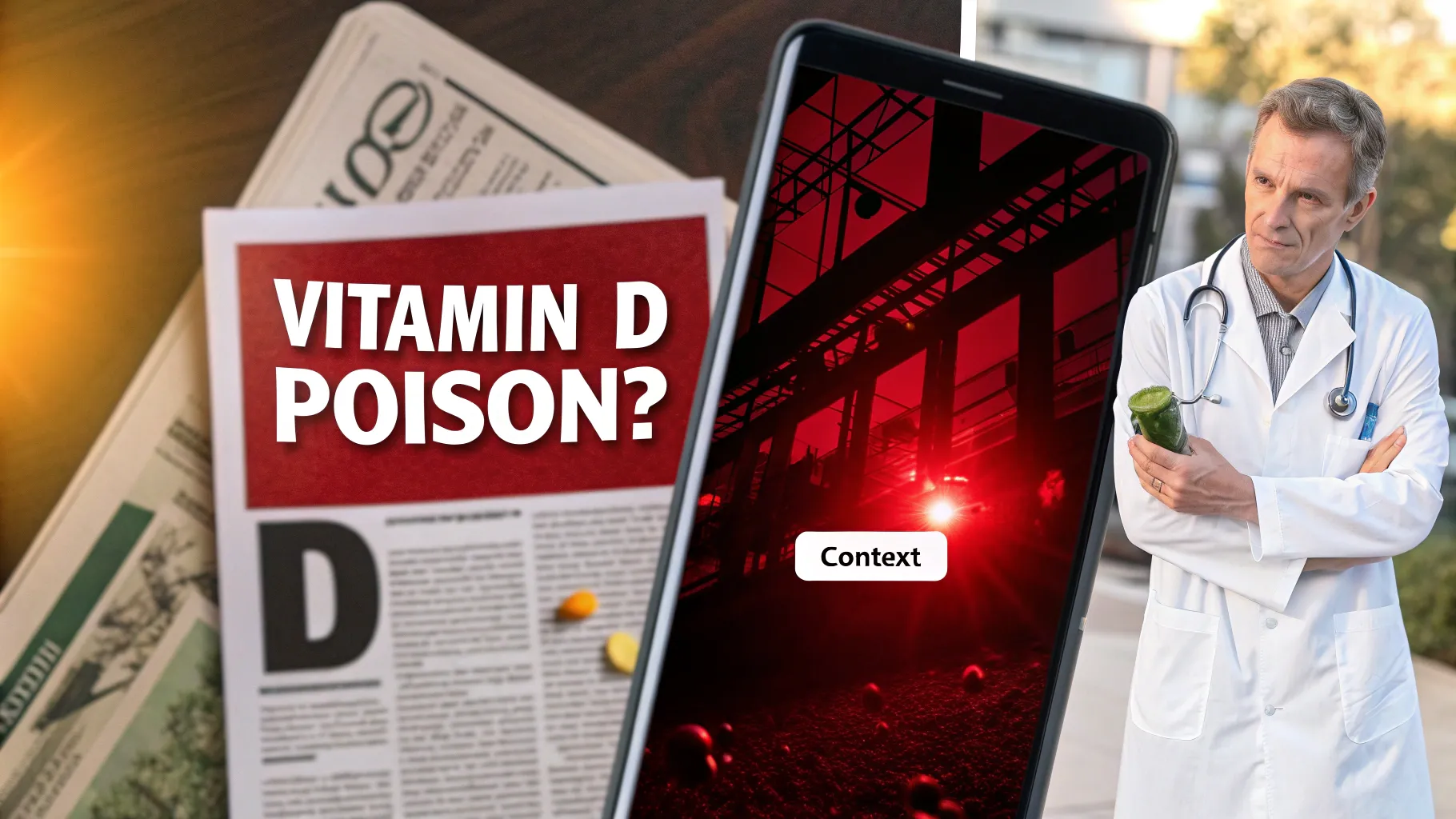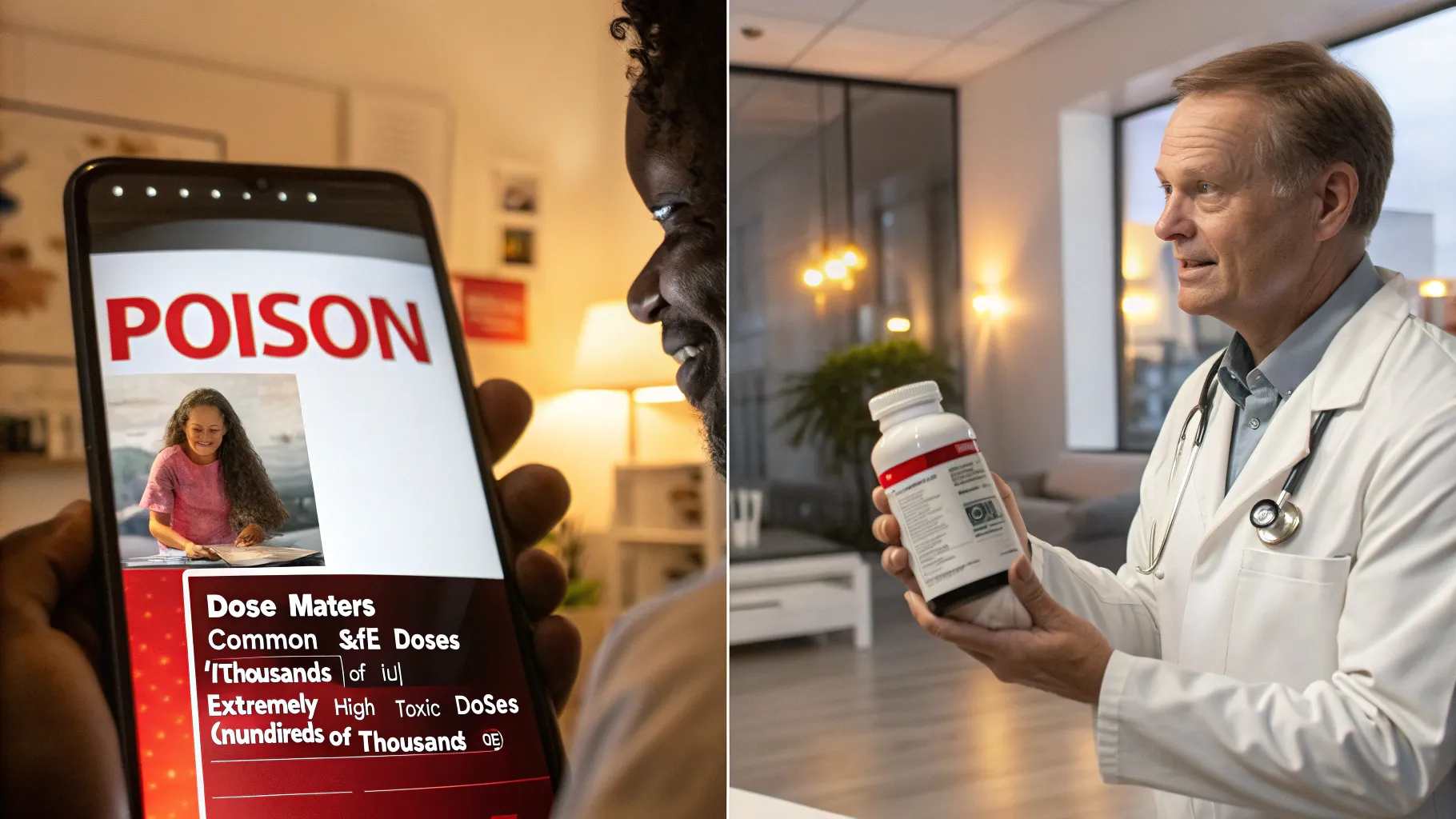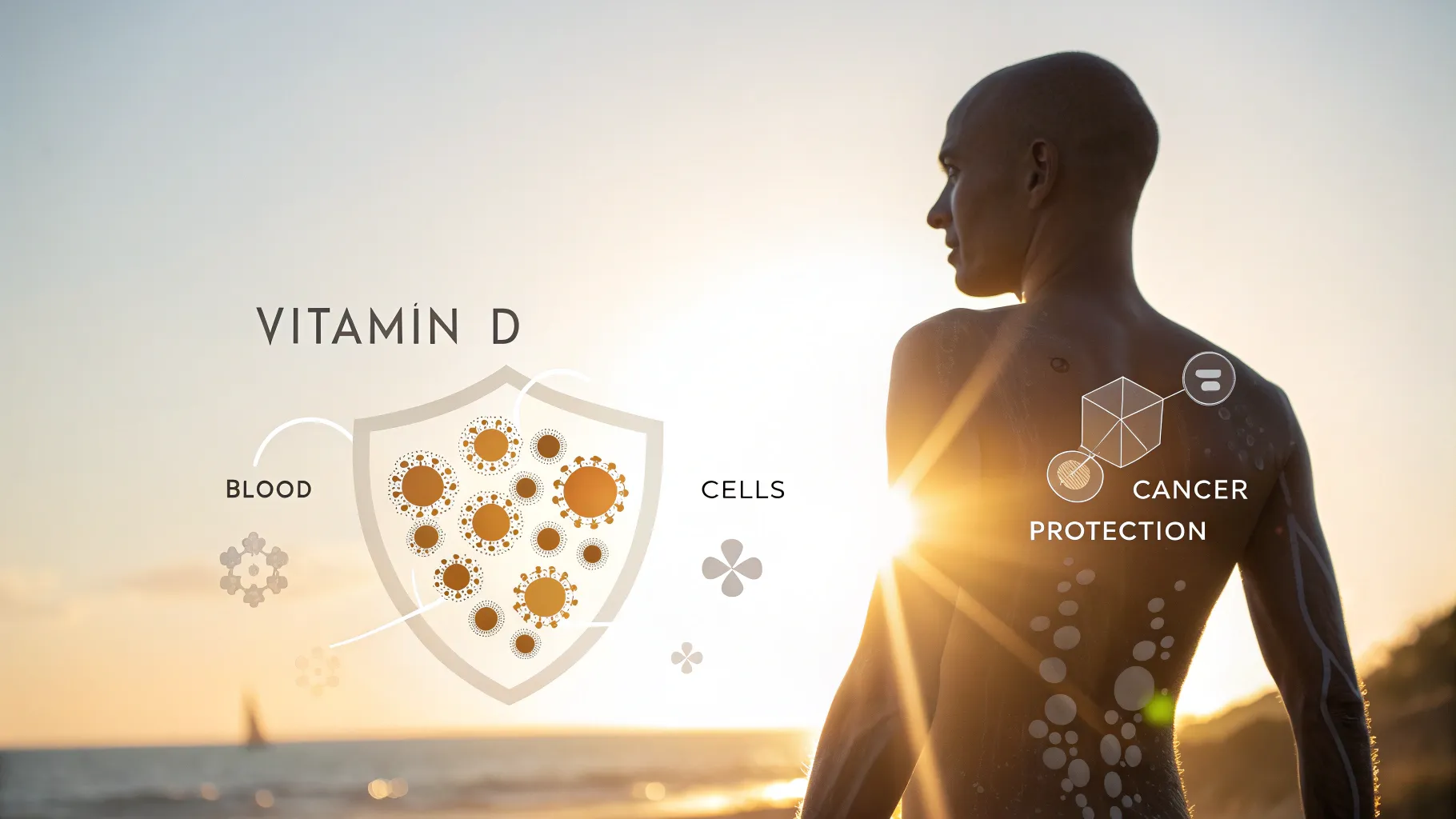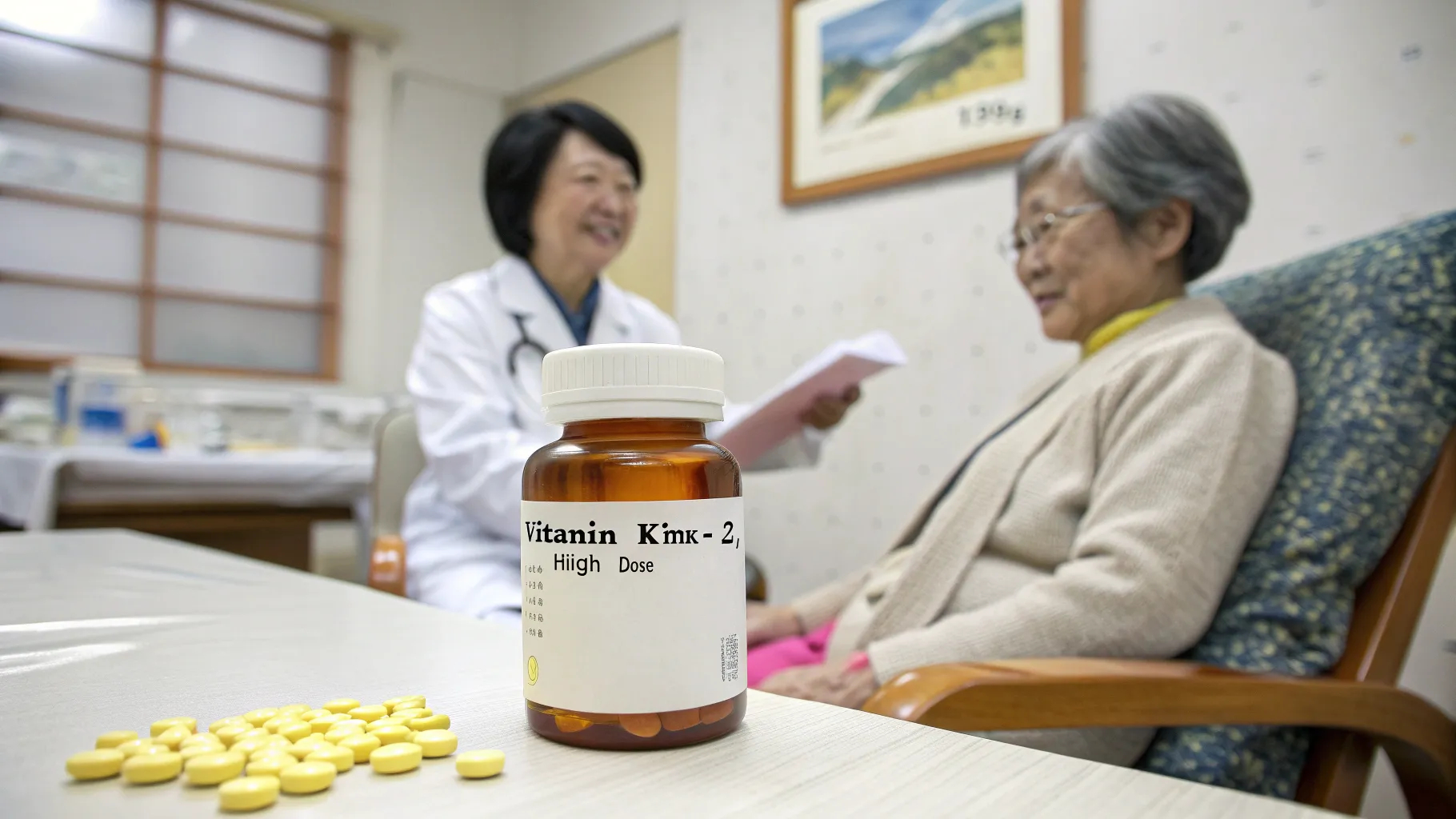
Vitamin D and K2: Don’t Be Misled — A Practical Guide to Safe Supplementation
Oct 12, 2025
Vitamin D and K2: Don’t Be Misled — A Practical Guide to Safe Supplementation
Hello — I’m Dr. Stanley Lang. I created a short video on this topic to inform my patients at Mercy Family Health, and I want to put the same thoughts into writing here so you can refer back to them.

The recent headlines and blog pieces claiming vitamin D is “poison” are misleading. In this article I’ll explain why vitamin D is important, why the alarmist claims are wrong, and why vitamin K2 is an essential partner to take alongside vitamin D for long-term safety and benefit.
The misleading claim: “Vitamin D is a rat poison”
Recently a blog post circulated that suggested vitamin D should be avoided because it is used as a rat poison. That’s a dramatic claim designed to alarm people, but it ignores basic toxicology: every substance can be toxic at a high enough dose.
To put this in perspective: the rat dose cited for toxicity is roughly the equivalent of a human taking 500,000 international units (IU). That is far beyond any reasonable human supplementation plan. In my clinical experience and review of the literature, typical daily supplemental intakes that produce benefit fall in the range of a few thousand IU, not hundreds of thousands. Some calculations suggest that the actual rat poison equivalence is even more than the 500,000 units but for the sake of argument, a patient would need to take 1000 tablets that were 5000 units in one day to hit that dose. Nobody even comes close to taking this ridiculous amount.

Saying something is a poison because massive overdoses can kill misses the point and does a disservice to people seeking sensible health advice.
"Don't listen to these people. They either don't know what they're talking about, or they are purposely trying to mislead you." — Dr. Stanley Lang
A brief history: how medicine misunderstood vitamin D
For many decades the medical community focused mainly on calcium for bone health. Official recommendations for vitamin D intake were very low — think 400 IU/day — amounts that guarantee deficiency for most people, especially in the northern United States. Over time researchers and clinicians realized that the majority of adults were vitamin D deficient and that the old recommendations were inadequate.
It took many years for medical practice to catch up. Even as late as 2010, many physicians were not routinely recommending sufficient vitamin D supplementation to bring people into normal ranges.
What the evidence and clinical experience show
-
Large practical studies and clinical experience have shown that higher vitamin D levels correlate with important benefits, including immune function and cancer-protective effects.
- A notable self-funded study by a breast cancer survivor found that the average woman needed roughly 7,000 IU/day to reach a high-normal vitamin D level — a level associated in many studies with stronger anti-cancer effects.
- During the COVID-19 pandemic, one of the clearest signals was that patients who were vitamin D deficient fared much worse. Those with adequate vitamin D were more likely to survive even with multiple comorbidities.
From my clinical practice: taking 5,000 IU/day of vitamin D is very rarely associated with toxicity in adults. Some people need higher doses — 7,000 IU or even 10,000 IU — to reach and maintain optimal blood levels, particularly those who absorb vitamin D poorly. When doses get into the higher ranges, periodic blood testing is prudent to ensure levels are in the desired range.
Why vitamin K2 matters — the missing piece
One of the most important messages I want to emphasize is that vitamin D and vitamin K2 work together. This relationship has been known in the literature for years and routine medical practice has been slow to incorporate it.

In Japan, for example, high-dose vitamin K2 has been used to treat osteoporosis since the mid-1990s.
Here’s the simplified biology in plain terms:
- Vitamin D increases calcium absorption from the gut — it makes your body much more efficient at extracting calcium from food.
- Vitamin D also signals your bones to produce proteins that will bind calcium and build bone.
- Vitamin K2 activates those bone-binding proteins so calcium actually attaches to the bone where it belongs.
- Vitamin K2 also activates matrix GLA proteins in soft tissues, which help prevent calcium from depositing in arteries and other soft tissues.
If you restore vitamin D levels but ignore vitamin K2 (and you are K2-deficient), calcium can be driven into places you don’t want it over time. That’s why I routinely recommend robust vitamin K2 supplementation for patients taking vitamin D unless they clearly have a high-K2 diet (which is uncommon).
Practical guidance — what I recommend and why
- Don’t be swayed by alarmist headlines that misrepresent science. Vitamin D is not inherently dangerous at appropriate doses.
- For most adults, 5,000 IU/day of vitamin D is a safe and effective supplement to correct deficiency and maintain healthy levels. It is uncommon to reach toxic levels on this dose.
- Some individuals may require higher doses (7,000 IU/day or more) to reach a high-normal blood level; these people should have their levels checked periodically.
- Always consider vitamin K2 along with vitamin D. K2 is critical for directing calcium to bone and keeping it out of soft tissues and arteries.
- If you get regular, substantial sun exposure (UVB) you may make enough vitamin D naturally. Otherwise, supplementation is reasonable.
When I measured vitamin D levels in my patients during years of practice, the pattern was clear: deficiency was rampant, and reasonable supplementation produced benefit with very low risk when combined with K2 and monitored appropriately.
Final thoughts
In short: vitamin D is an essential nutrient with broad effects on immune function, bone health, and more. The media claim that it is “poison” ignores context, dose, and decades of clinical evidence. The smarter approach is to correct deficiency safely and thoughtfully, and to pair vitamin D with vitamin K2 to maximize benefit and minimize potential harms.
If you are a patient of Mercy Family Health and want specific guidance, our office has provided dosing guidelines to patients and we are available to answer questions. If you are not a patient, please consult your physician before making medical decisions.
God bless — stay well.
Click Here to Access Your First Trial of StemWave Pain management
Stay connected with news and updates!
Join our mailing list to receive the latest news and updates from our team.
Don't worry, your information will not be shared.
We hate SPAM. We will never sell your information, for any reason.
